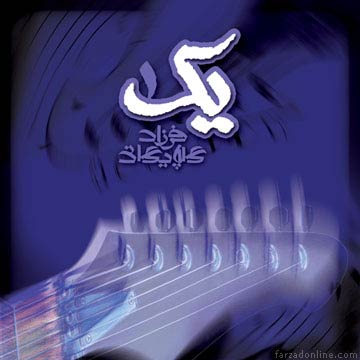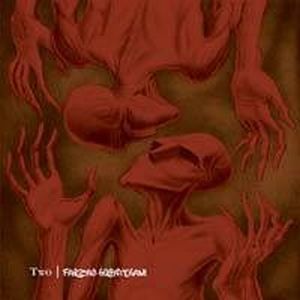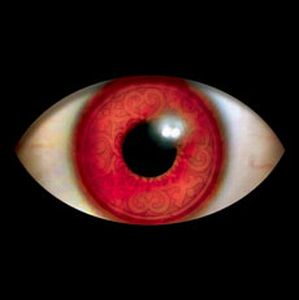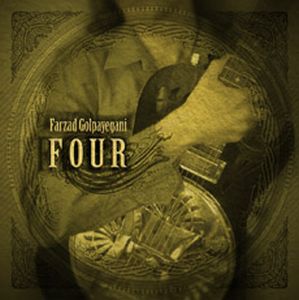Progarchives.com has always (since 2002) relied on banners ads to cover web hosting fees and all.
Please consider supporting us by giving monthly PayPal donations and help keep PA fast-loading and ad-free forever.
/PAlogo_v2.gif) |
|
Post Reply 
|
| Author | |
toroddfuglesteg 
Forum Senior Member 

Retired Joined: March 04 2008 Location: Retirement Home Status: Offline Points: 3658 |
 Topic: Farzad Golpayegani Topic: Farzad GolpayeganiPosted: January 20 2011 at 14:45 |
|
Farzad Golpayegani is a virtuoso guitarist who was born Tehran, Iran. Farzad Golpayegani bought his first guitar in 1994. For a while, he had a guitar teacher, but he developed most of his skill teaching himself. Farzad Golpayegani composes all the music, mixes and masters all tracks and some cover art is self designed. He plays 7 string guitars, acoustic guitars, bass guitars and for keyboards, drums and percussion, he sometimes programs it himself. Other times he will use band members for other instruments. His style can be described as a cross between jazz fusion and metal. He has released four albums. The two first albums are available from his website as free downloads while the last two albums are available through CD Baby. I got in touch with Farzad and here is his story. @@@@@@@@@@@@@@@@@@@@@@@@@@@@@@@
Just to start with,
please tell us more about your background and why you took up music.
Who were and still is your musical inspirations ?
I’m Farzad Golpayegani, Persian
Composer, Musician and Visual Arts artist. My father was artist as
well, although he passed away at my childhood but we always had the
spirit of interest in arts in the family. I have an older brother who
had a big role in forming my musical view since I was a kid. He was
listening to rock and Metal music on and little by little I found
rock music interesting. When I became teenager I bought my first
electric guitar and focused on music more seriously.
Iran has a very
restrictive view on music and in particular; more contemporary music
and art. Musicians and film directors has been put in jail for making
music or movies. You have now relocated to Istanbul, Turkey. But how
was it to compose music (your two first albums ?) under these
restrictions ?
It was very difficult. There was a time
that even carrying a musical instrument in the street was a bit risky
but about 8 years ago some opportunities started to appear on
government’s politics about arts. That time there were some hopes
of having the musical activities as a rock musician legally. I was
lucky to get the first license for a Metal album in Islamic Republic
of Iran. Then after some more struggles got the permission to have
couple of metal concert as well. Although my music is Instrumental
and also has many Eastern and Iranian elements in it still it was
very hard to get the permission. We needed to get everything about
our work Approve by the government, Including band’s name, members
with complete portfolio, music, cover design, advertisements, vocals
and lyrics separately (if there was any) and etc. other than that we
could face serious problems. Even after getting all the licenses
still we were not 100% sure that we’ll having a performance or
something like this. For example it was possible that just before
going on stage or after playing one or two songs an authority
prohibit our performance. All these were only about the time that
working was Possible, because after the next president and more
conservative view of their politics it was almost impossible to have
any serious activity. It was the time that underground music in Iran
started to grow faster. I’m currently consider as a underground
musician but underground music is something different in Iran,
because we’re not allowed to work. Though in western countries
people prefer to be underground artists on their own.
 Let's go to your
first album One from 2002. Please tell us more about this album.
In brief still I’m following the same
idea of that record, which was achieving a mix from Metal music and
Middle Eastern and Persian music. It was my first experience to
record my songs in that level. In fact first I made some records to
take it to the next level then in a professional studio, but it
didn’t happened. There were many problems and little by little I
learnt how to work on my home studio and then completed the album
myself. Even finally in the main version I used some of the first
records that I use to make as a guide. For example in the demo
version I had some solos that I decided not to repeat again because I
thought the feeling that I was following while playing the parts is
fit into music. Obviously because of first experience it has some
mistakes but I learnt a lot during preparing the tracks. I composed
the music, performed, recorded, mix, mastered and even designed the
cover on my own. I took the license for releasing the album myself
and then signed an unfair contract for album “One” with a record
label inside Iran which wasted many opportunities about my first
records. I faced a very long latency, about 2 years for it to be
published..
 Let's go to your
second album Two from 2005. Please tell us more about this album.
Since “One” faced many latency for
distribution, preparing the second release became a bit slow. I had
so much enthusiasm to work on my projects especially because it was
very new and different from other releases on that time inside Iran
and there was no any other metal music in our official stores. I
managed to get the license for album “Two” as well but when I was
waiting for my turn to have my album be published president and the
politics of the ministry of art changed. They found my record doesn’t
meet the qualifications they accept and refused to let album “Two”
be published. From that time I didn’t go to get any license
anymore.
Theme of my second album is very
similar to the first one but it sounds more professional. Again I
tried to mix Metal and Traditional music and other styles together,
used eastern tuning for guitar and etc.  Let's go to your
third album Three from 2008. Please tell us more about this album.
Album “Three” is my best experience
to have different types of music in single Metal record. I call the
style of the record as “Persian Progressive Metal”. To get more
progressive feeling on the music I decided to have only three tracks
with long durations like 17 - 18 min. for each. Another element which
is different from previous albums is that I tried to mix eastern and
western elements in all different parts of the record, Especially in
heavy and fast parts it’s more obvious. I have special tuning for
acoustic guitar that make it sound like an Iranian instrument. I have
used this technique in previous albums as well but this time I used
it while having the fast tempo and very aggressive rhythms too. In
this album “Arash Jafari” was the guest artist on percussions, we
used “Darbuka”, “Oudo” and “Daf” on some parts. Album
also includes a hidden track which is a medley cover song from 10
different artists. I covered the tracks in my own style like other
tracks in the album. Also connecting one song to another brought more
progressive sense into that cover song.  Let's go to your
fourth album Four from 2010. Please tell us more about this album.
In last three albums there were moment
that music was close to “Fusion” music. For this record I wanted
to make a full album in that style. In spite of big role of technical
playing of electric guitar in my music I decided to do not use
electric guitar in entire record. In fact there are only Acoustic
guitar (steel and nylon sting), Resonance guitar, Bass guitar and
Violin, which I played all by myself. Also “Ali Sanaei” was the
guest artist on bass guitar for last two tracks of album. I have done
programming for strings in some songs too. This record does not
include any drums and percussion as well. Comparing previous albums I
have more Middle Eastern influences in this record. In many moments
listeners think I’m playing an Iranian instrument but in fact like
previous records it’s all acoustic guitar.
You were also very
much involved in the computer game Quest of Persia: Nader's Blade and
it's soundtrack. Please tell us more about this game and soundtrack.
Aside of my own projects I also work as
a composer for short movies, advertisements and video games. Quest of
Persia II was a very interesting commission to me because it needed
most of qualifications that my works already have. Radicals like
Persian motifs and Dynamic feel of rock music. The only difference
was need of epic sense that I fulfilled it by adding Strings and
Choir into compositions. Story of the game come from the Persian
history and it’s one the best video games that has produced in Iran
so far. First we wanted to release the soundtracks untouched as an
album but then I had an idea to rework on soundtracks to form it like
another record of mine. A record that doesn’t include only Themes
and Rhythms but also Solos. I have also composed music for another
video game called “Garshasp”. Quest of Persia II has a historic
theme and Garshasp is more ancient. For Garshasp I also wrote wind
instruments to achieve the right environment. I’m adding some parts
and Solos to these two projects and have in mind to complete it as my
sixth record after I finished my own fifth music project.
For those of the
readers who are not familiar with your music: How would you describe
your music and how would you describe your guitar style ? My music has Middle Eastern and Persian
elements in it. I’ve followed different styles in my albums. They
are mainly “Instrumental Progressive Metal”. I also work in
“Fusion” genre. Traits of my music are shredding with Eastern
feel with 7string electric guitar, using Acoustic guitar with
innovative tune which make it sounds like old Eastern instruments,
Progressive and dynamic riffs, mix different styles into on single
composition. I’m influenced by legend musician and composers in
different categories, like Folklore and Traditional, Jazz, Classic,
Rock and Metal. In spite of technical view of my works, to me playing
solo and shredding is not only passing from one technique to another
and it doesn’t matter how hard is to play a solo part, more
important and valuable part is the feel, character and sense in it.
When I play a solo I try to keep the Persian and Eastern root, even
if I’m playing a very fast and heavy riff. Your two albums are
free downloads from your website and the final two albums are
available from CD Baby. I believe all four albums are self-released.
Please give us pros and cons of releasing your music on your own.
Music industry has changed a lot and in
my opinion waiting for a record label to sign with is losing the
chance to get more experience. Actually I was signed for my first
record, but the situation was even worse. I wanted my album be
released in a good way and financial part was not so important to me
for the first record because at first I wanted to get more exposure
and audience, so I gave most of the rights to record label. It was a
mistake of me that thought if I give them more rights they will
distribute it better because they didn’t treat fairly. They made
delay for about two years on releasing my record, and then did it in
a very bad quality. There was only cassettes and I never even saw
their CD! The price they paid me was contemptuous low. In the
meantime there was struggle with government for getting the
permissions for the next records, so after that I preferred to
publish the records as Self-released which was not legal actually in
Iran. I made some CDs by myself but generally my records were
distributed over the internet on my official website
farzadonline.com. because of economic sanctions I was not able to
release the albums on digital music stores until I moved to Turkey
and assigned my last two record “Three” and “Four” as a
self-released on “CD Baby” and all streaming online music stores.
Financially I don’t receive a big feedback but hopefully I can plan
and schedule on my own. I believe nowadays number of independent
artist is growing and it’s not unusual to release an album without
signing to a big record label.
Besides of music;
how is your life in Istanbul ?
I spent last year not so smoothly, I
had all the usual problem with moving to a new place, sometimes I’ve
been facing hard problems that now I consider them as experiences.
Hopefully now I feel more settle in here. Istanbul is a very live
city and I like its atmosphere and culture. I also visit my hometown
very frequently. I work as a freelancer and for most of the projects
that I receive it’s not important where I stay. Aside of being a
composer and musician I’m also visual art artist and work on
graphic design commissions as well.
The first reason for me to move to
Istanbul was to continue my musical activities easier. During the
last year I tried to reform my band for start having performances but
unfortunately it didn’t work. Just recently I sorted finding the
suitable members out and it’s possible to have a concert soon. But
as my activity, I’m usually working on commissions I receive and my
own projects at home-studio. What is your plans
for this year and beyond ?
If everything goes well I’ll be
starting my performances in a few months here in Turkey. I have in
mind to release two albums in this year, which will be “Five” and
“Six”. Album “Five” has a different style from my previous
albums. It’s electronic ambient and has electric guitar solo in it.
Rhythm of this record’s compositions are not heavy or metal in
anyway but in solo parts it is very technical. The sixth album will
be reworked soundtracks that I have composed for video games so far.
I enjoy hard work on the projects I
like, and I hope to find the time for fulfill my plans. Beside all of
musical activities I’m a Painter too and I hope to complete my next
Painting collection soon. Since I started working on music seriously
I haven’t spent so much on my paintings. During last year I didn’t
find time to paint any new artwork.
To wrap up this
interview, is there anything you want to add to this interview ?
I only have a message to beginner
musicians and that they should never waste their time to find a high
level opportunity to continue their work. If they don’t work, they
don’t make progress on their carrier. The most important thing is
to enjoy working on music, and not getting a huge feedback. If you
don’t love playing music in the first place even getting a huge
exposure will not be satisfying for long. Thank you to Farzad for this interview His four albums can be downloaded from here
|
|
 |
|
Post Reply 
|
|
| Forum Jump | Forum Permissions  You cannot post new topics in this forum You cannot reply to topics in this forum You cannot delete your posts in this forum You cannot edit your posts in this forum You cannot create polls in this forum You cannot vote in polls in this forum |